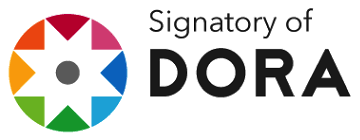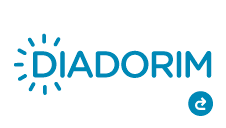About the Journal
MISSION
The journal MÚSICA HODIE, affiliated with the Postgraduate Program in Music at the Federal University of Goiás, aims to disseminate and share original research freely within the academic community, focusing on themes related to the research lines of our PPG:
- Interpretative Practices and Composition;
- Epistemic, Discursive, and Formative Practices; and
- Neuroscience of Music.
The target audience for MÚSICA HODIE includes music researchers, encompassing their interdisciplinary areas, higher education professors, postgraduate students, and other professionals interested in the specified themes.
MÚSICA HODIE is currently edited in an online version and accepts submissions on a rolling basis in Portuguese, Spanish, and English. The journal requires a minimum doctoral degree for authors interested in submitting articles. In the case of collective authorship, at least one of the authors must possess this qualification. The editorial team analyzes cases involving senior researchers with recognized expertise. In any case, submissions undergo the peer review process by double-blind review.
EDITORIAL POLICY
The editorial team initially evaluates submitted articles, screening them to verify compliance with the journal's guidelines, focus, and scope. Manuscripts that meet these criteria are forwarded to Ph. D.-level researchers from various academic and research institutions, who act as ad hoc reviewers. This process ensures the implementation of a double-blind peer review, safeguarding impartiality.
During this stage, the reviewer—affiliated with an institution different from that of the author(s)—must declare the absence of conflicts of interest and confirm their availability to conduct the evaluation. If a reviewer declines, a new one will be appointed.
Reviewers will assess the manuscripts based on originality, theoretical and methodological consistency, linguistic cohesion according to academic standards, relevance to the journal's themes, and adherence to formatting guidelines.
Final acceptance requires approval from two reviewers. In the event of a disagreement during the double-blind review, the submission will be forwarded to a third ad hoc reviewer for a final decision. Once this phase is concluded, the authors will be notified and receive the reviewers' comments.
Articles approved without revisions will be sent directly to the Editorial Review Coordination and may proceed to layout or have minor adjustments requested to improve clarity or precision. The suggestions will be forwarded to the authors if modifications are recommended, who may implement them by the editor's deadline.
The manuscript will be archived if the authors do not comply with mandatory revisions. If the authors accept the recommendations, the revised version must indicate the changes made for the editor's verification. The editor will then confirm whether the revisions meet expectations and decide whether to proceed with publication.
Reviewer names may be disclosed at the time of article publication. While the evaluation process remains double-blind, in alignment with Open Science policies, reviewers who give prior consent may have their names and peer review reports published alongside the article.
The authors are responsible for ensuring anonymity in the manuscript. MÚSICA HODIE does not evaluate submissions that fail to comply with anonymization standards. Authors are advised to remove their names from the file metadata and any part of the manuscript.
Doctoral-level authors affiliated with graduate programs may be invited to serve as ad hoc reviewers in future editorial rounds.
Note 1: We do not publish articles presented at scientific events, or chapters derived from theses or dissertations; only original, unpublished works are accepted. Articles by invited authors are subject to the same peer review process as regular submissions. Exceptionally, translated articles originally published in international peer-reviewed journals may be accepted, provided formal permission is granted by the original publisher and the article is re-evaluated under the same editorial standards, with a footnote indicating its republication. The maximum timeframe for peer review is six months, depending on reviewer availability and responsiveness.
Note 2: MÚSICA HODIE does not publish more than one article by the same author within a twelve-month interval. Authors may only submit new manuscripts one year after their most recent publication in the journal.
Frequency
Until 2018, the MÚSICA HODIE journal had a biannual publication frequency. However, starting in 2019, it adopted an annual publication in a continuous flow system. With this change, the MÚSICA HODIE journal has been published uninterruptedly since 2001.
Open Access Policy
Musica Hodie journal is committed to Open Access, a form of publishing that aims to make scientific research widely accessible to the general public without financial barriers or access restrictions.
According to the definition of the Directory of Open Access Journals (DOAJ), an open-access journal is one in which the copyright holder of a scholarly work grants usage rights to others through an open license (Creative Commons or equivalent). This allows for immediate and free access to the work, enabling any user to read, download, copy, distribute, print, search, or link to the full texts of articles, index them, pass them as data to software, or use them for any other lawful purpose.
All content's full text is free and can be accessed without delay or restrictions. There is no embargo period, and users are not required to register to access the content.
The journal Música Hodie is indexed at the DOAJ - Directory of Open Access Journals.
Copyright and Privacy Policy
Authors retain unrestricted copyright to their texts. The names and addresses provided in this journal will be used exclusively for the services offered by this publication. They will not be made available for other purposes or to third parties. The MÚSICA HODIE journal operates under the Creative Commons Attribution 4.0 International License (CC BY 4.0).
Digital Preservation and Promotion Policy
The MÚSICA HODIE journal is part of the UFG Periodicals Portal and is stored on the Federal University of Goiás's server. The portal is affiliated with the Cariniana Network—Brazilian Digital Preservation Services Network (IBICT)—and funded by FAPEG (Goiás State Research Support Foundation).
Ethics Policy against Plagiarism and Misconduct
The MÚSICA HODIE journal follows the guidelines of COPE (Committee on Publication Ethics) to promote the identification of plagiarism, misconduct, fraud, possible ethical violations, and the subsequent initiation of procedures. Consequently, all texts submitted to the journal undergo rigorous inspection through plagiarism detection programs.
Based on research ethics criteria, all articles will be subjected to the Similarity Check plagiarism detection program: https://www.crossref.org/services/similarity-check/
The MÚSICA HODIE Journal encourages the ethical and responsible use of Artificial Intelligence (AI) in academic research. Authors must be transparent by documenting methods and data, adhering to ethical standards, and promoting reproducibility by providing codes and data. Article disclosures should be detailed, emphasizing the role of AI in the research. The journal reserves the possibility of including AI-specialized reviewers. Authors should refer to the journal's specific policies regarding AI use, addressing issues of bias and equity. These guidelines aim to promote high-quality research and contribute to ethical and responsible advancements in the application of AI in the academic community.
Retraction Policy
The MÚSICA HODIE Journal adheres to the ethical principles outlined by COPE (Committee on Publication Ethics) and follows the guidelines specified at https://publicationethics.org/files/Code_of_conduct_for_journal_editors_Mar11.pdf.
Committed to integrity, the journal conducts the entire editorial process by ethical standards, investigating suspicions of misconduct to uphold scientific rigor. In cases of reported misconduct during the process, the evaluation is paused for investigation, only to be resumed if no misconduct is substantiated.
In instances of author misconduct, the article is removed from evaluation, and the journal may refuse future submissions from those involved. If misconduct involves editors, they are suspended, and if committed by an ad hoc reviewer, their role as an evaluator for the journal is deactivated.
Alignment with the Open Science Principle
The MÚSICA HODIE journal is a scientific open-access periodical, ensuring that all content is freely available, with no costs to the user or their institution. Readers are granted permission to read, download, copy, distribute, print, search, or link to the full texts of articles, using them for any legal purpose without prior permission from the editor or author. In line with Open Science principles, the journal seeks continuous updates to ensure openness and transparency in all knowledge management processes.
We have adopted Digital Object Identifiers (DOIs) to facilitate data location and provide detailed data descriptions with appropriate metadata. The MÚSICA HODIE Journal encourages the academic community to embrace and adopt Open Science principles. In this regard, we aim to implement open peer review. Initially, we disclose the names of reviewers and editors responsible for approved articles and annually publish the list of reviewers. Starting in 2024, reviewers who agree to be identified will have the opportunity to publish their reviews. This practice reinforces our commitment to transparency and openness in the review process, enhancing the participation of the academic community in this dynamic Open Science context.
The Journal Música Hodie endorses the San Francisco Declaration (DORA) - Research Assessment.
To align itself with Brazilian scientific journals registered in Miguilim to the Open Access and Science Movements, the Journal Música Hodie has adopted the Declaration on Research Assessment (DORA[1]) as a code of ethics and international recommendations, "recognizing the need to improve how the results of academic research are evaluated" (DORA, 2021). Read the Declaration in full at https://sfdora.org/read/
In this sense, signing the DORA Code of Ethics seeks to establish the foundations to promote practical and robust approaches to research assessment globally and across all academic disciplines, as described in the terms.
Thus, scientific articles must describe:
Originality - The results of original research, following the journal's editorial line. Manuscripts published in symposium proceedings, conferences, etc., or translated articles from foreign scientific journals will not be accepted.
Responsible authorship—To streamline the editorial process, we inform that for submissions of works in areas of knowledge where the journal does not have qualified members in the body of evaluators, the editor will request authors to submit "a letter to the editor, containing five suggestions for evaluators and the effective contributions of each author," a procedure already adopted by international journals.
Flexibility - Opportunities for best practices are offered, making the number of words, figures, and references in articles more flexible. Special calls or thematic dossiers may receive special recommendations.
Música Hodie in the Directory of Editorial Policies of Brazilian Scientific Journals - DIADORIM
Diadorim is an information service regarding the permissions granted for storing and accessing articles from Brazilian journals in open-access digital repositories. It is part of the open-access services the Brazilian Institute of Information in Science and Technology provides. The information disclosed here is collected directly from the editors of Brazilian scientific journals, to whom we express our gratitude for providing and updating the information.
This service's purpose is to identify, systematize, and make available information on the policies established by the publishers of Brazilian journals regarding the storage of articles in institutional repositories. It constitutes an essential reference source so authors and repository managers do not violate the author's and journal's publication agreement when archiving articles in the institution's repository.
Gender Issues
Aware of the historical challenges related to gender issues both within academia and in society, the Música Hodie journal reaffirms its commitment as a supporter of initiatives to promote gender equality. Additionally, it endorses strategies for the formation of a more inclusive academic and scientific community, adequately representing women, members of the LGBTI+ community, and Indigenous peoples and ethnicities in situations of vulnerability and marginalization.
The journal aligns with Sustainable Development Goal No. 5 - Gender Equality, as established by SDG 5. Further information about this goal can be found at https://brasil.un.org/pt-br/sdgs/5. This stance reinforces our dedication to promoting a diverse and inclusive academic community, contributing to a more equitable and sustainable environment.
We recommend that authors aligned with these issues, when submitting their work to the Música Hodie Journal, consider including clear and specific indications related to gender, diversity, and inclusion in titles and keywords. Using terms such as "gender equality," "diversity," "inclusion," "inclusive academic community," "representation," "women in music," "LGBTI+," "indigenous peoples," and "ethnicities in situations of vulnerability" can enhance the identification of these aspects by indexing mechanisms. This practice contributes to greater visibility of the content and reinforces the journal's commitment to promoting an inclusive and diversified approach to scientific production related to music.
Journal History
Música Hodie was founded in 2001 within the Graduate Program in Music at the School of Music and Performing Arts of the Federal University of Goiás (UFG), on the initiative of Prof. Sonia Ray, who served as its first editor until 2016. Since 2017, the journal has been led by Prof. Anselmo Guerra, current Editor-in-Chief.
Since its establishment, the journal has been published uninterruptedly. Initially organized into two annual issues, it adopted in 2019 the annual volume model with continuous publication, in alignment with international best practices in scholarly publishing.
Música Hodie is supported by an Editorial Board and Advisory Board composed of scholars with recognized local, national, and international expertise, strengthening its academic reach and global engagement.
The journal is indexed in internationally recognized databases and catalogues, including SCOPUS, RILM – International Repertory of Music Literature, Arts & Humanities Index, EBSCO, and Google Scholar, and is classified as Qualis (A3) in the Arts area by CAPES.
Scope and Editorial Policy
Música Hodie aims to promote scientific and artistic research in the field of Music, with particular emphasis on the research areas of the Graduate Program in Music at UFG:
-
Performance Practices and Composition
-
Epistemic, Discursive, and Educational Practices
-
Music Neuroscience
The journal prioritizes contemporary musical production and encourages interdisciplinary dialogue and emerging theoretical and practical debates.
Manuscripts submitted to the sections ARTICLE and OTHER WORDS undergo double-blind peer review conducted by external reviewers.
Each volume may include thematic dossiers regularly announced through public calls. Submissions are accepted on a continuous basis, and accepted manuscripts after the closure of a volume are automatically assigned to the subsequent volume.
Bibliometric Indicators















